Departments and Research Groups
Łukasiewicz Research Network - Institute of Non-Ferrous Metals
(former Central Laboratory of Batteries and Cells)
Łukasiewicz Research Network - Institute of Non-Ferrous Metals
(former Central Laboratory of Batteries and Cells)
tel.: +48 61 27 97 800
fax: +48 61 27 97 897
e-mail: claio@imn.lukasiewicz.gov.pl
Chemical Power Sources Testing Laboratory
- Profile
- Services
- Equipment
- Contact

At the laboratory we do electrical, mechanical, environmental and safety (included handling and transport) tests for all types of batteries and cells. We provide our expertise and state-of-art equipment to do demanding tests with due dilligence, accuracy and safety.
We are an independent laboratory facility. Certainly, we offer our services to our Clients in Poland and abroad, but no company has influence on test results, testing procedures, equipment choice and our approach to Client.
Our information is transparent, your data is confidential
Laboratory’s scope of activity:
- Examination of electrical, mechanical and climatic parameters as well as parameters concerning safety of transport or use of all types of batteries.
- Development, assessment and deployment of new testing methods and measuring and control systems.
- Cooperation with Polish Centre for Accreditation.
Click here to download Laboratory offer (English version)
To guarantee high quality of its competences and tests, Laboratory has deployed quality management system according to PN-EN ISO/IEC 17025.
Since 1997 our facility has been acting as an accredited research unit. Since this time the Laboratory has Accreditation Certificate no AB 124 issued by Polish Centre for Accreditation (PCA).
To download (in Polish only):
Temperature bath
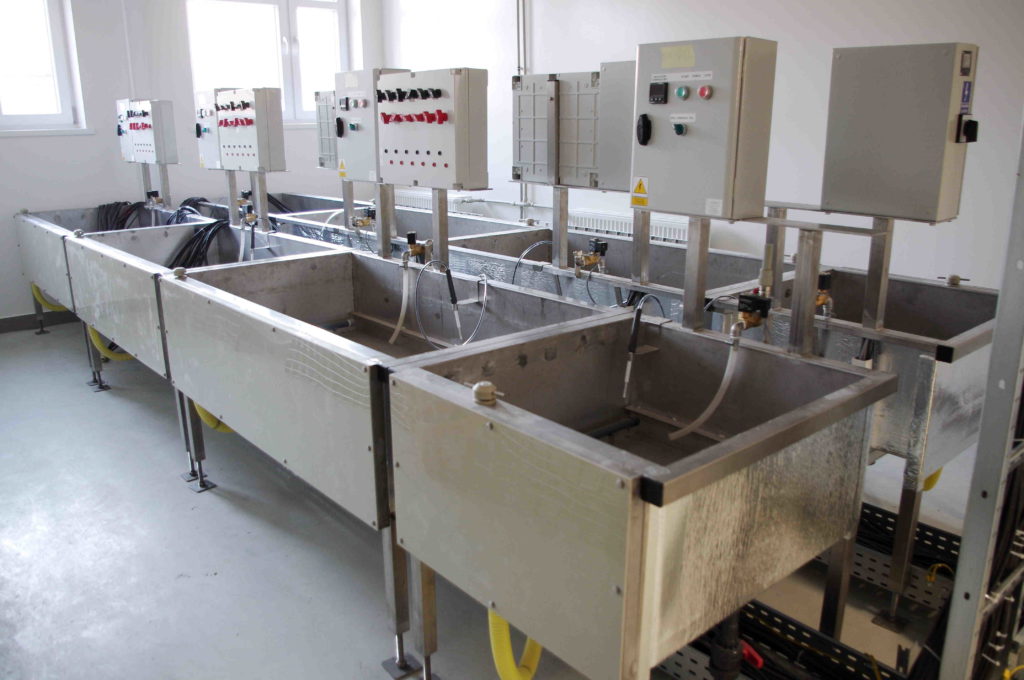
18 temperature baths to carry out tests in water bath (temperature range from 25°C to 80°C)
Water temperature and level automatically controlled
Digatron
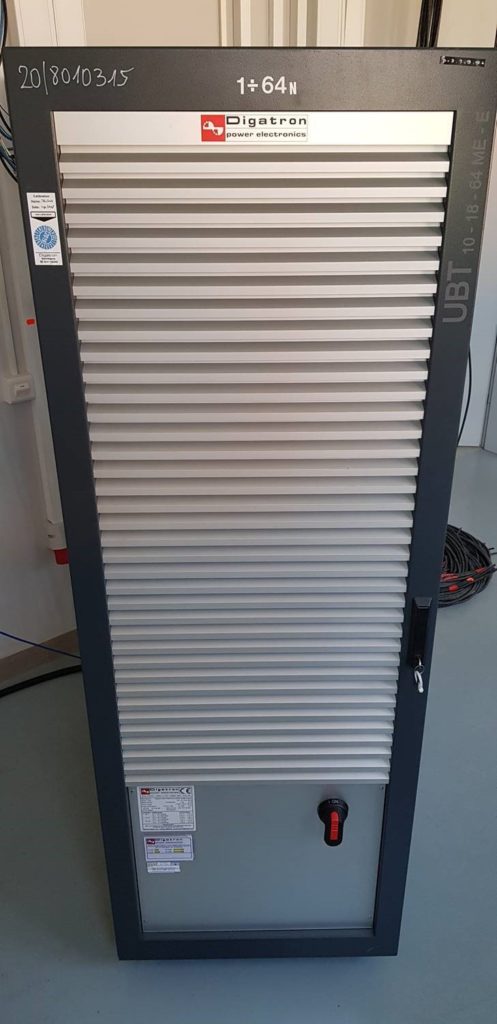
Digatron UBT 50-12-6
Over 150 circuits enabling wide range of electrical test configurations
- Charging 0V – 800V; 0,01A – 300A
- Discharging 800V – 0V; 0,01A – 2000A
- Accuracy up to 0,1%,
- Data reporting up to 100Hz
Resistance analyser HIOKI 3554
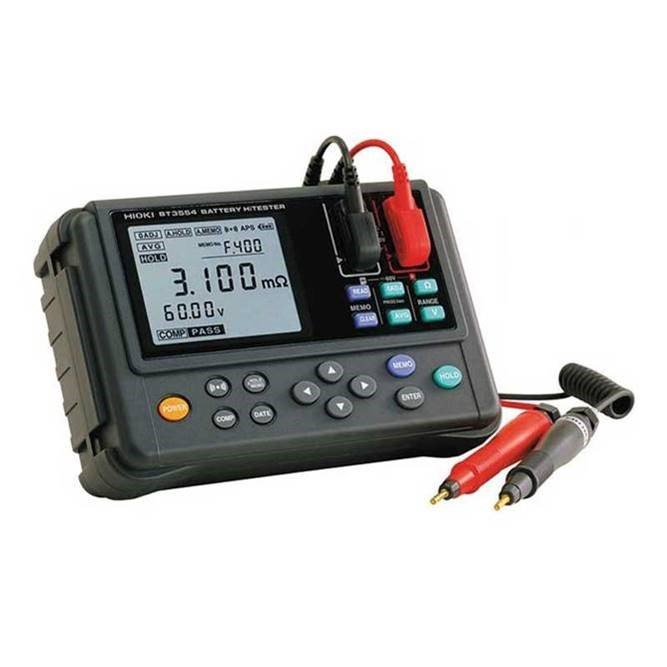
Four ranges of internal resistance measurement: 3,000m/30,00/300,0/3,000 Ω
Measurement frequency: 1 kHz ±30 Hz
Vibration system Tira TV 56280/LS-180
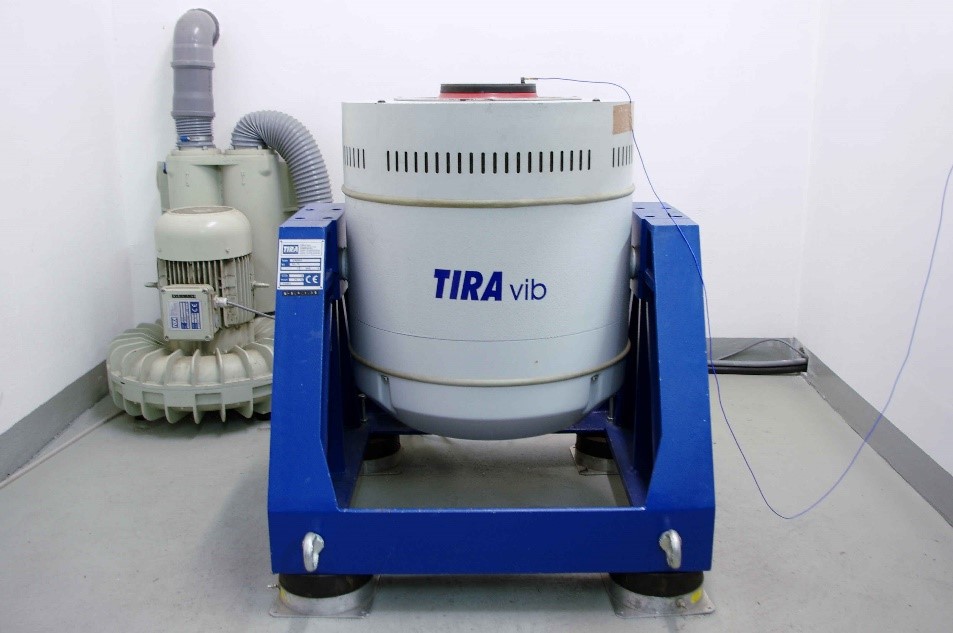
Force for process sinus max: 8000 N
Force for process random max: 8000 N
Force for stresses: 16 000 N
Frequency range: DC – 3000Hz
Vacuum climate chamber UD 150 C
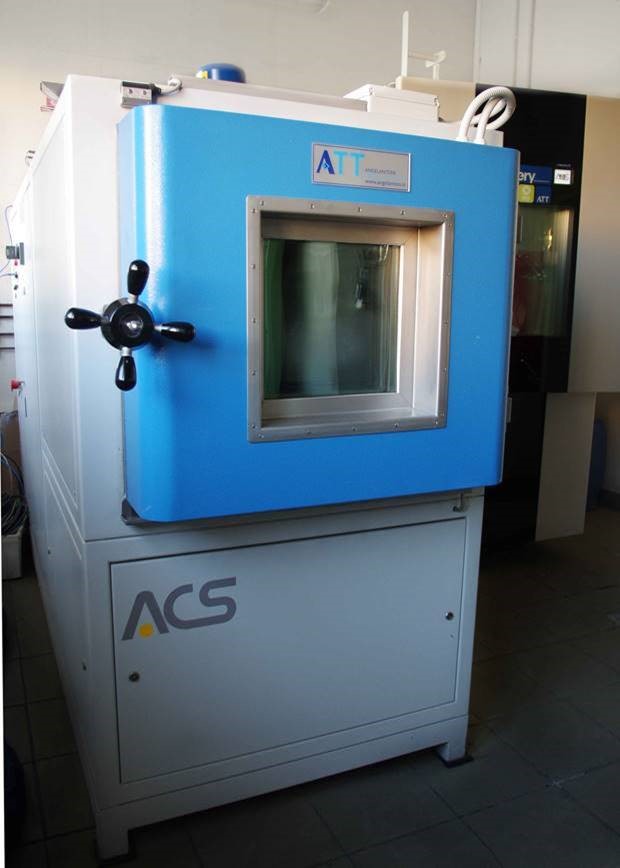
Temperature range: -70/+100°C
Pressure up to 1 mbar
Temperature chamber
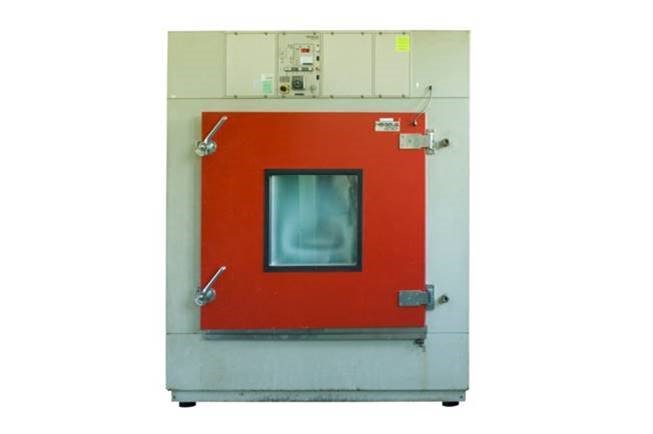
Temperature range: – 80°C ÷ +180°C
Climate chamber
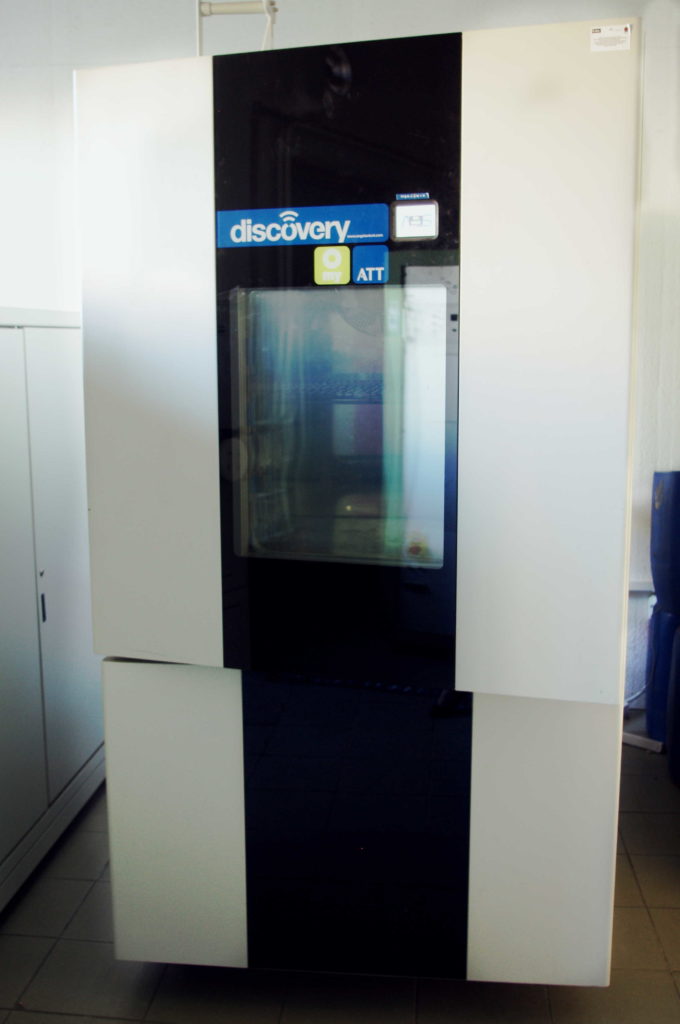
Temperature range: – 70°C ÷ + 180°C
Humidity up to 98%
Crushing and penetration test chamber
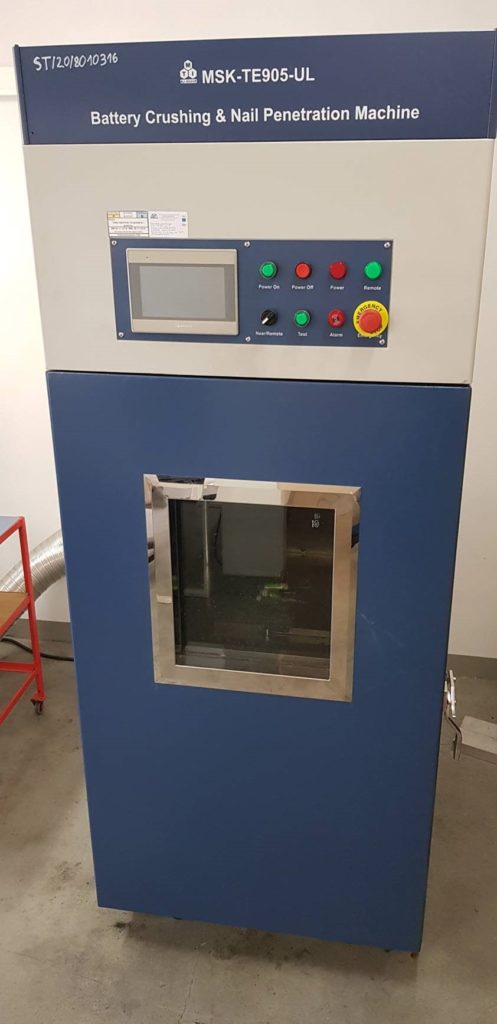
Crushing force: 1000N – 15000N
Crushing arm speed: 1 – 55 mm/s
Test could be stopped after voltage drop or at a certain deformation degree (measurment possible).
External short-circuit tester with laboratory incubator
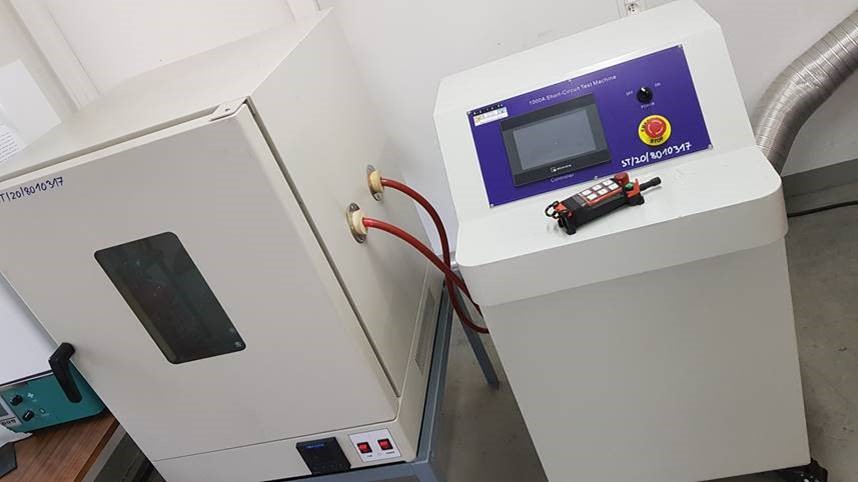
Short-circuit current up to 1000A,
Reporting data on short-circuit current, time,
Remote control of test start or stop
Laboratory incubator for sample heating up to 100°C
electronic testers
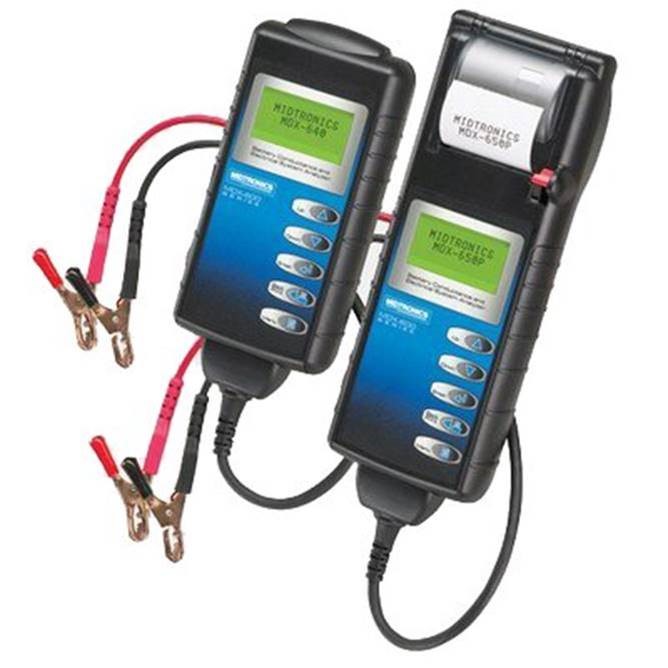
for SLI batteries
and many more
Please contact Laboratory manager
Kamil Frączek, M. Sc.
Phone:.+48 61 27 97 882
Mobile phone: +48 516 068 981
E-mail: kamil.fraczek@imn.lukasiewicz.gov.pl
Łukasiewicz Research Network - Institute of Non-Ferrous Metals
(former Central Laboratory of Batteries and Cells)
Łukasiewicz Research Network - Institute of Non-Ferrous Metals
(former Central Laboratory of Batteries and Cells)
tel.: +48 61 27 97 800
fax: +48 61 27 97 897
e-mail: claio@imn.lukasiewicz.gov.pl

